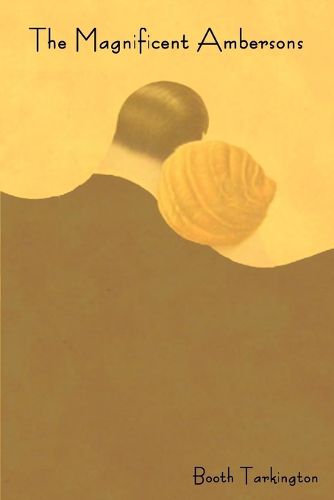Readings Newsletter
Become a Readings Member to make your shopping experience even easier.
Sign in or sign up for free!
You’re not far away from qualifying for FREE standard shipping within Australia
You’ve qualified for FREE standard shipping within Australia
The cart is loading…






This title is printed to order. This book may have been self-published. If so, we cannot guarantee the quality of the content. In the main most books will have gone through the editing process however some may not. We therefore suggest that you be aware of this before ordering this book. If in doubt check either the author or publisher’s details as we are unable to accept any returns unless they are faulty. Please contact us if you have any questions.
Booth Tarkington (July 29, 1869 - May 19, 1946) was an American novelist and dramatist best known for his Pulitzer Prize-winning novels The Magnificent Ambersons and Alice Adams. He is one of only three novelists (the others being William Faulkner and John Updike) to win the Pulitzer Prize for Fiction more than once. The Magnificent Ambersons is a 1918 novel by Booth Tarkington which won the 1919 Pulitzer Prize for novel. It was the second novel in his Growth trilogy, which included The Turmoil (1915) and The Midlander (1923, retitled National Avenue in 1927). In 1942 Orson Welles directed an acclaimed film version of the book; Welles’s original screenplay was the basis of 2002 TV movie produced by the A&E Network. The novel and trilogy trace the growth of the United States through the declining fortunes of three generations of the aristocratic Amberson family in a fictional Midwestern town, between the end of the Civil War and the early part of the 20th century, a period of rapid industrialization and socio-economic change in America. The decline of the Ambersons is contrasted with the rising fortunes of industrial tycoons and other new-money families, which did not derive power from family names but by doing things. As George Amberson’s friend (name unspecified) says, don’t you think being things is ‘rahthuh bettuh’ than doing things? (wikipedia.org)
$9.00 standard shipping within Australia
FREE standard shipping within Australia for orders over $100.00
Express & International shipping calculated at checkout
This title is printed to order. This book may have been self-published. If so, we cannot guarantee the quality of the content. In the main most books will have gone through the editing process however some may not. We therefore suggest that you be aware of this before ordering this book. If in doubt check either the author or publisher’s details as we are unable to accept any returns unless they are faulty. Please contact us if you have any questions.
Booth Tarkington (July 29, 1869 - May 19, 1946) was an American novelist and dramatist best known for his Pulitzer Prize-winning novels The Magnificent Ambersons and Alice Adams. He is one of only three novelists (the others being William Faulkner and John Updike) to win the Pulitzer Prize for Fiction more than once. The Magnificent Ambersons is a 1918 novel by Booth Tarkington which won the 1919 Pulitzer Prize for novel. It was the second novel in his Growth trilogy, which included The Turmoil (1915) and The Midlander (1923, retitled National Avenue in 1927). In 1942 Orson Welles directed an acclaimed film version of the book; Welles’s original screenplay was the basis of 2002 TV movie produced by the A&E Network. The novel and trilogy trace the growth of the United States through the declining fortunes of three generations of the aristocratic Amberson family in a fictional Midwestern town, between the end of the Civil War and the early part of the 20th century, a period of rapid industrialization and socio-economic change in America. The decline of the Ambersons is contrasted with the rising fortunes of industrial tycoons and other new-money families, which did not derive power from family names but by doing things. As George Amberson’s friend (name unspecified) says, don’t you think being things is ‘rahthuh bettuh’ than doing things? (wikipedia.org)